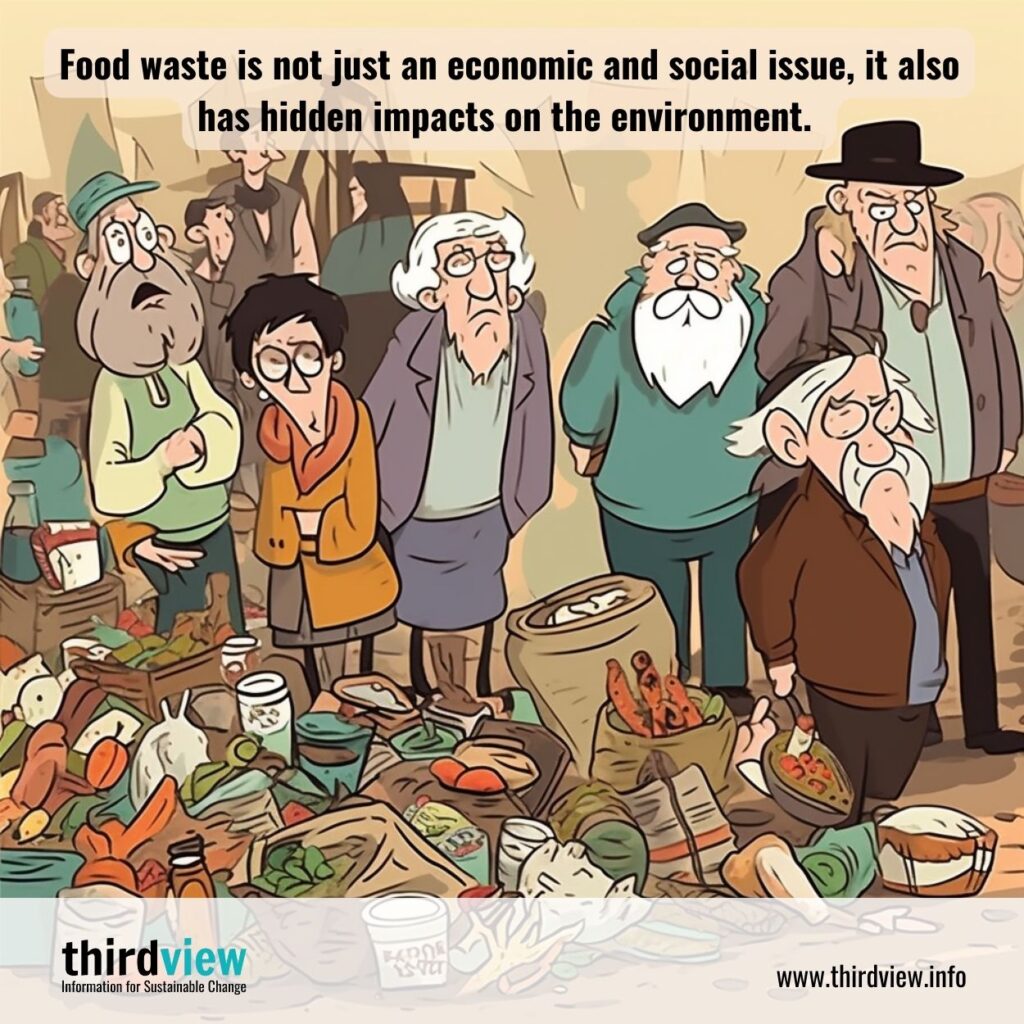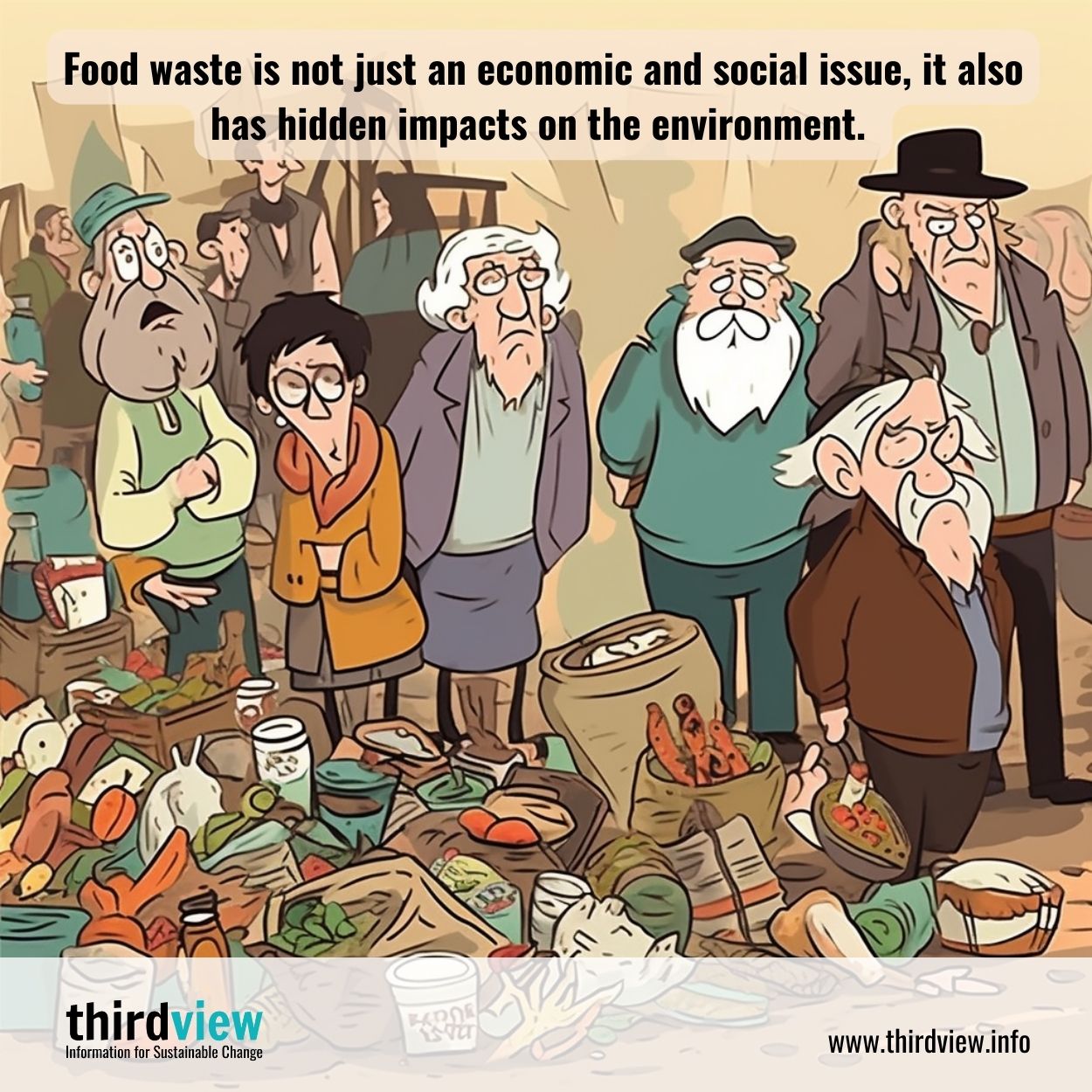Food waste is a serious problem worldwide, and its impacts are well-known in terms of economic loss, social inequality, and ethical issues. However, what many people may not realize is that food waste also has significant impacts on the environment. As we discard food, we also waste resources such as water, energy, and land, and contribute to greenhouse gas emissions, deforestation, and soil degradation. In this blog post, we will explore the lesser-known ways food waste impacts the environment and what we can do to minimize its effects.
Climate change
Food waste is a major contributor to climate change, accounting for about 8% of global greenhouse gas emissions. When we waste food, we also waste the resources used to produce it which contribute to emissions of carbon dioxide, methane, and nitrous oxide. In addition, when food waste ends up in landfills, it decomposes and produces methane, a potent greenhouse gas that is 28 times stronger than carbon dioxide in its warming effect. To reduce the impacts of food waste on the climate, we need to reduce our demand for food, minimize waste throughout the supply chain, and find better ways to dispose of food waste, such as composting and anaerobic digestion.
Land degradation
Food waste also contributes to land degradation, reducing the quality and productivity of agricultural soil. When we waste food, we also waste the resources used to grow it, such as land, water, and fertilizer, which can lead to soil erosion, nutrient depletion, and desertification. Additionally, food waste that ends up in landfills takes up valuable space, which could otherwise be used for parks, housing, or other purposes. To protect our land from the impacts of food waste, we need to improve land use practices, reduce waste in agriculture and food processing, and promote sustainable food systems.
Water scarcity
Food waste also has significant impacts on water resources, which are becoming increasingly scarce in many parts of the world. When we waste food, we also waste the water used to grow, irrigate, and process it, which can put a strain on water supplies and ecosystem health. For instance, the production of one kilogram of beef requires about 15,000 litres of water, while one kilogram of rice requires only 2,500 litres. By reducing food waste and choosing more water-efficient foods, we can help conserve water resources and ensure a sustainable future.
Biodiversity loss
Food waste also contributes to biodiversity loss, as it can lead to deforestation, habitat destruction, and species extinction. When we waste food, we also waste the resources used to produce it, such as forests, grasslands, and wetlands, which support a variety of plant and animal life. In addition, food waste that ends up in landfills can release pollutants and toxins into the environment, which can harm wildlife and ecosystems. To protect biodiversity from the impacts of food waste, we need to promote sustainable land use practices, protect natural habitats, and reduce waste in agriculture and food production.
Social inequality
Finally, food waste also has social impacts, as it exacerbates food insecurity and inequality. When we waste food, we also waste the resources used to produce it, which could otherwise be used to feed people in need. This is particularly troublesome given that one in nine people is suffering from hunger worldwide, while we waste about one-third of all food produced. To reduce the social impacts of food waste, we need to improve access to food, reduce waste throughout the supply chain, and support food recovery and donation programs.
In conclusion, food waste is a complex and multifaceted issue that has significant impacts on the environment, as well as on economic, social, and ethical dimensions. By becoming more aware of the hidden ways food waste affects the environment, we can take action to minimize its effects and promote a more sustainable food system. This includes reducing our demand for food, minimizing waste throughout the supply chain, and finding better ways to dispose of food waste. By working together, we can build a brighter and more sustainable future for all.


